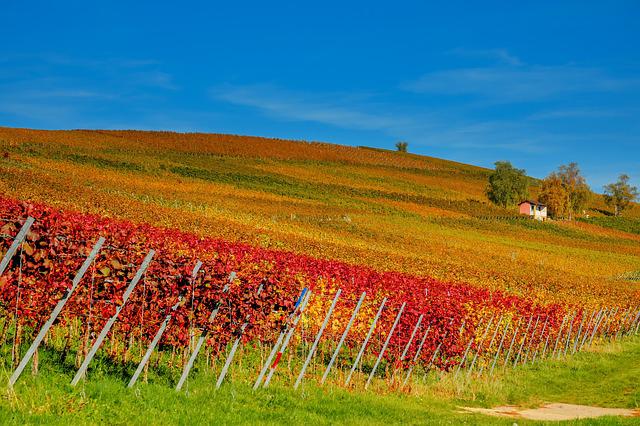
You own one or more parcels of rented vineyards that you wish to sell. The situation, although very common, is nevertheless quite complex: here's how it works.

First of all, it is necessary to clarify the rights of your tenant, the farmer. The rural code is very strict (article L 411-1 et seq.) and most of the provisions of the lease are provided for by law without any possibility of derogation.
Thus, in the case of a rural lease, the contract has a minimum duration of 9 years and the farmer has an automatic right to renew the lease.
Even if it is not in writing, the (paying) lease on a wine-growing property is a rural lease (this is referred to as a verbal lease) subject to the same rules on duration and renewal. One difficulty, however, lies in the uncertainty of the starting date of the contract, as we shall see later.
Unlike residential leases, the owner's wish to sell the vines does not allow him to oppose the renewal of the lease.
As a landlord you therefore have several options:
This right to renewal is not universal and there are certain circumstances in which you can object to it:
When the farmer reaches retirement age, you can give him/her notice to quit on the expiry date of the lease or after 3 years if the lease is renewed.
Example: The vineyard lease expired on 31 December 2021 and was renewed. The farmer reaches the age of 62 during the year 2023. The lessor can therefore request the non-renewal of the lease for 31 December 2024, 2027, 2030, etc.
Warning: To oppose the renewal of the lease, the owner must respect a very strict formalism: notify the farmer of his decision by bailiff's act at least 18 months before the end of the lease. The intervention of a rural law professional is recommended to avoid any error. Even more so when it is a verbal lease where the starting date (and therefore the end date) is difficult to prove officially.
The takeover to exploit the property will be the subject of a specific article in the near future.
 Transfer of the lease
Transfer of the lease But it is not because your landlord reaches retirement age that you can end the lease.
The farmer can transfer the lease to his spouse or descendants.
However, your consent is required. If you do not agree to this transfer, your farmer may then apply to the Tribunal Paritaire des Baux Ruraux for permission. Except in the case of poor maintenance, repeated late payment, etc., in short, faults that are attributable to the farmer in the life of the lease, the Tribunal will usually authorise the transfer of the lease.
Your farmer has a right to renew his lease and a right to transfer it to his descendants. However, there is no obligation on either party to continue the tenancy if they do not wish to.
You can talk to your farmer about your plans to sell. If you reach an agreement on the terms of the purchase, you can sign an amicable termination agreement between you and the farmer at any time during the lease or its renewals and carry out the sale.
It should be noted that if the lease is more than two years old, the farmer will benefit from reduced registration fees, which will significantly reduce the cost of the deeds (a saving of more than 5%). And the SAFER will not benefit from a right of pre-emption if the lease is more than 3 years old because in this situation the farmer's rights take precedence over those of the SAFER.
You can also offer your farmer an amicable termination of the lease, accompanied by a termination indemnity. He is free to accept or not. If he accepts, you can then look for a buyer with vines that are free to rent.
If you have not reached an agreement with your farmer, you can still look for a buyer.
This could be an investor: a person who buys the vines as an investment and wants to receive rent.
Or a future farmer: a buyer who will ask for the lease not to be renewed at the end of its term in order to farm it himself. Given the time required for acquisition and the time required for notification of termination, this future owner will have to start his project long before the end of the lease.
The fact that the vines are leased has an impact on the sale price. The price is indeed subject to an average discount of 20%, which can be explained by the smaller number of potential buyers and by the relatively small amount of rent compared to the value of the vines.
Another important point is that your buyer takes over the lease with all its conditions. It will not be possible to modify the lease without the agreement of the farmer, except in the situation where the rent is excessively low in relation to normal practice. The new owner could then apply to the Tribunal Paritaire des Baux Ruraux for an increase in rent.

Your farmer has told you that he does not want to buy the vines on the terms you offered. You have looked for and found a buyer for these plots.
You must still inform your farmer of the conditions of the sale because he has a right of pre-emption.
The notary will notify the farmer of the sale, who will then have 3 options:
Note that even a minor change in the conditions of the sale requires the procedure for notifying the right of pre-emption to be re-launched.
Sales within the family circle and donations or successions do not give the farmer the right of pre-emption.
However, there is an exception to this right of pre-emption. The lessee can only benefit from this right if he owns himself a surface of land inferior to 3 times the Minimum Installation Surface. This area is defined at the level of each department.
The farmer who exercises his right of pre-emption is obliged to farm the vineyard for a minimum of 9 years.
With regard to the rights of the farmer, if your relationship is not good, it may be difficult to find a buyer who will accept these legal complexities.
However, investment in vineyards is becoming increasingly popular and sought after by investors.
Indeed, for several years now, interest rates have been very low. This drop in profitability has made investing in vineyards more attractive. In fact, in France, farm rents represent between 1 and 5% of the value of the vines. Moreover, over the last 30 years, the value of vines has risen sharply in certain vineyards and in the most prestigious appellations.
Vines are therefore an attractive investment, especially as a long-term lease will allow tax advantages in the event of donation, inheritance or in respect of property wealth tax.
We therefore advise you, if you wish to sell your leased vineyard plots, to contact your farmer to propose the purchase.
If your farmer refuses to buy, you can propose an amicable termination of your lease in order to put a vineyard up for sale that is free of leases.
Then, publish your ad on ma-propriete.fr in the land category (sub-category "vines") or in the vineyard category (in the vineyard concerned).